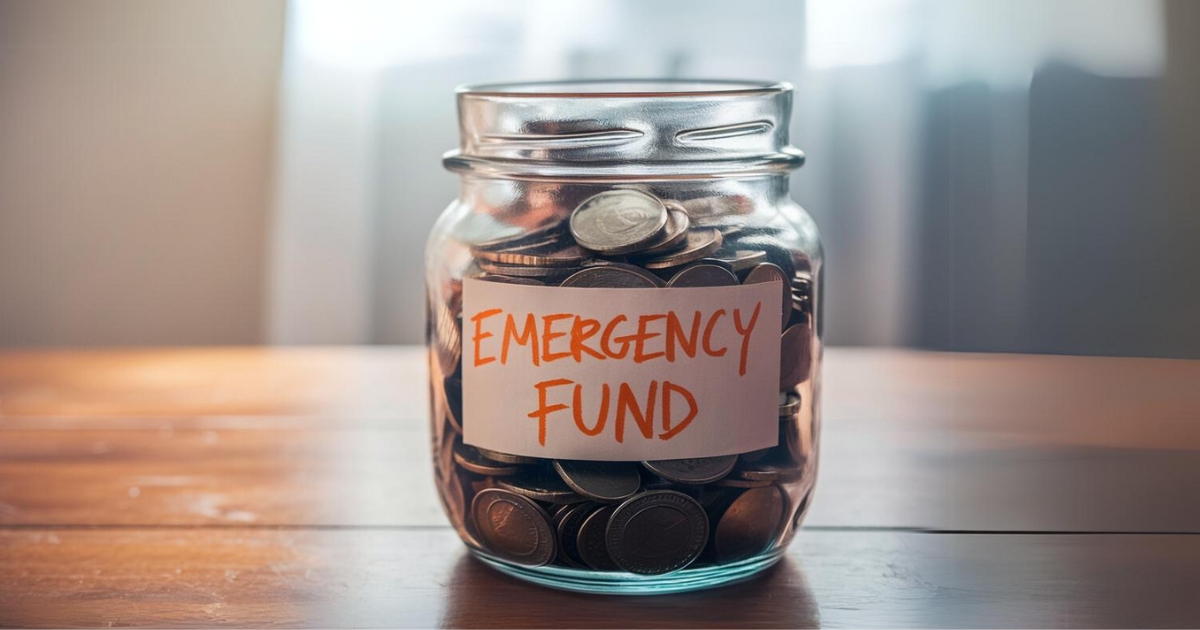
An emergency fund, often seen as a key component of financial stability, is a reserved amount of money set aside to handle unexpected expenses without disrupting one’s financial security. In South Africa, where economic conditions can change abruptly and dramatically, having an emergency fund is particularly important. It serves as a financial cushion to cover unforeseen costs such as medical emergencies, home repairs, or sudden job loss. Why is it important for South Africans to focus on building this safety net?
Key Takeaways
- Essential Financial Cushion: An emergency fund is vital for managing unexpected expenses without turning to debt, offering stability during economic fluctuations.
- Prevents Unfavourable Financial Choices: Having an emergency fund helps avoid high-cost financial solutions like credit cards or loans, which come with significant fees and interest rates, thus reducing the risk of accumulating debt.
- Effective Savings Strategy: It’s important to set realistic savings goals, start with small amounts, and gradually build the fund. Automating savings and keeping the funds in a less accessible account ensures that the money is used only for true emergencies.
About Arcadia Finance
Arcadia Finance makes securing your loan effortless, with no application fees and a selection of 19 reputable lenders. Each lender complies with South Africa’s National Credit Regulator standards, providing a streamlined process and options tailored to your financial requirements.
What is an Emergency Fund?
An emergency fund is a set amount of money saved specifically to handle unexpected financial needs or emergencies. Common situations where it might be used include vehicle repairs, home improvements, healthcare costs, or a disruption in income.
Generally, emergency funds are used to manage unexpected expenses, whether large or small, that fall outside of regular monthly spending and budgeting.
An emergency fund is your safety net but few maintain one. Our Living Paycheck to Paycheck guide shows the stakes when you rely on next month’s salary to cover today’s crisis.
Why Do You Need One?
Why should South Africans focus on having an emergency fund? Dealing with sudden expenses, such as an unexpected medical bill or urgent home repairs, often leads individuals to use credit cards or personal loans. However, these options can result in ongoing debt. On the other hand, an emergency fund provides a financial buffer and can earn interest, increasing its value over time.
Building an emergency fund is crucial, particularly when many South Africans rely on credit for essential expenses. This guide explains the importance of an emergency fund as a financial buffer to prevent the need for credit in times of unexpected expenses.
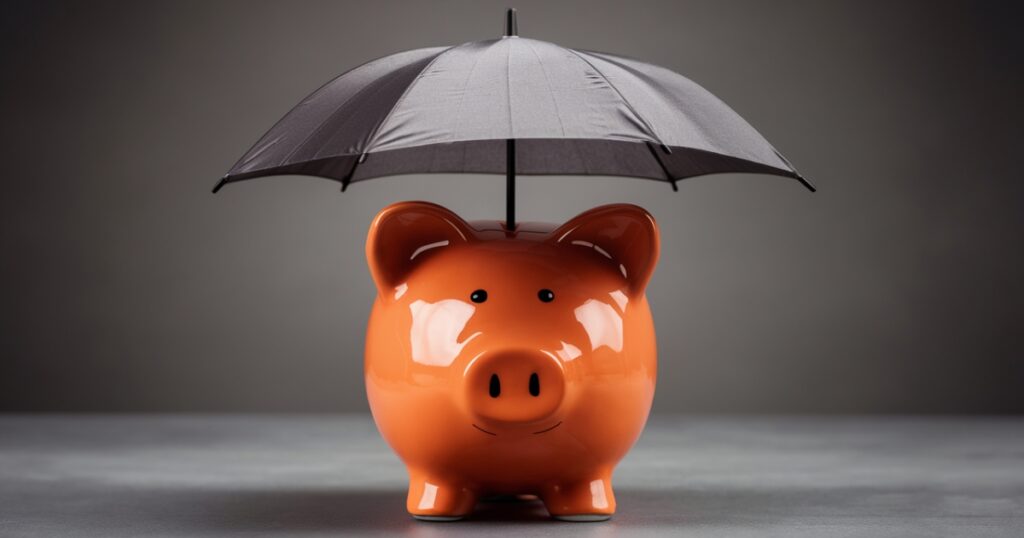
Benefits of Having an Emergency Fund
Having an emergency fund offers more than just financial stability; it provides several additional benefits:
- Avoids Poor Financial Choices: Quick access to cash through options like loans or credit cards can be tempting, but these often come with high costs, including interest rates, fees, and penalties. An emergency fund helps you steer clear of these financial issues by offering a ready source of funds without the drawbacks of borrowing.
- Reduces Stress: Emergencies can greatly affect your financial well-being and lead to considerable stress. Without a financial cushion, you’re always at risk of financial strain. An emergency fund not only covers unexpected expenses but also eases anxiety, allowing you to handle the situation without excessive worry about your finances.
- Limits Impulsive Spending: The saying “out of sight, out of mind” is apt for managing your emergency fund. By keeping these funds in a separate account, you reduce the temptation to spend impulsively. This approach not only protects your savings but also helps you track your progress and determine how much more you might need to feel secure.
Effective budgeting is the cornerstone of sound financial planning, especially when setting aside money for an emergency fund. Enhance your budgeting skills with our comprehensive Budgeting Tips that offer practical strategies to manage your finances better.
How Much Should You Save for an Emergency Fund?
To effectively protect yourself against financial disruptions, your emergency fund should ideally cover at least three times your monthly expenses. This ensures you can manage your regular costs and handle any debts during periods without income. Although accumulating this amount might seem challenging at first, aiming to reduce your expenditures to 80% of your net income provides a practical starting point. By saving 20% of your earnings, you could build your emergency reserve within a year. The most effective strategy is to transfer this amount directly to a savings account as soon as you receive your salary or set up a direct debit to automatically save a predetermined sum. Every contribution matters, no matter how small; consistently setting aside funds is crucial for breaking the cycle of living from paycheck to paycheck and starts with careful management of your expenses.
To further strengthen your financial planning, learn How to Save Money Monthly. This guide provides valuable insights into creating a sustainable savings habit that complements your emergency preparations.
Where to Begin?
- Set Small, Achievable Savings Goals
Start by establishing manageable savings targets. Instead of aiming to save three months’ worth of expenses immediately, begin with a smaller goal, such as one month or even two weeks’ worth of expenses. Reaching these smaller milestones can boost your motivation, making it easier to progress towards larger goals. As saving becomes a habit, gradually increase your targets.
- Start with Modest, Regular Contributions
Begin your savings with amounts that won’t strain your finances. Identify non-essential expenses you can cut back on, such as daily coffees, occasional luxury items, or entertainment costs. Choose a manageable sum, be it R50 or R100, and consistently save this amount at regular intervals, such as monthly, weekly, or with each paycheck. Consistency is key to making saving a routine habit rather than a financial burden.
- Automate Your Savings
To ensure you consistently save without having to think about it, automate your savings. Many employers offer direct deposit options that can allocate funds into multiple accounts. Set up a separate account for your emergency fund and automate deposits to this account, either directly from your paycheck or through automatic bank transfers. Choose a type of account that isn’t easily accessible to discourage impulsive withdrawals.
- Maintain Spending Discipline
Once you establish your savings habit, avoid letting your spending creep back up. Resist the temptation to replace old spending habits with new ones, such as substituting a monthly clothing purchase with another regular expense. If you find yourself with extra funds each month, consider increasing your savings contributions rather than raising your spending or accumulating new debt.
- Avoid Over-Saving in Your Emergency Fund
While building your emergency fund is crucial, it’s important not to overallocate resources to it. Emergency funds should be easily accessible, often meaning they are kept in low-interest accounts. Once you reach your savings goal, focus on directing future savings into higher-yield investments, such as retirement accounts, to maximise your financial growth.
Diversifying income is a practical approach to building your emergency fund. Our resource on different Work From Home Jobs in South Africa can provide readers with ideas to increase their earnings, thereby enhancing their ability to save for emergencies.
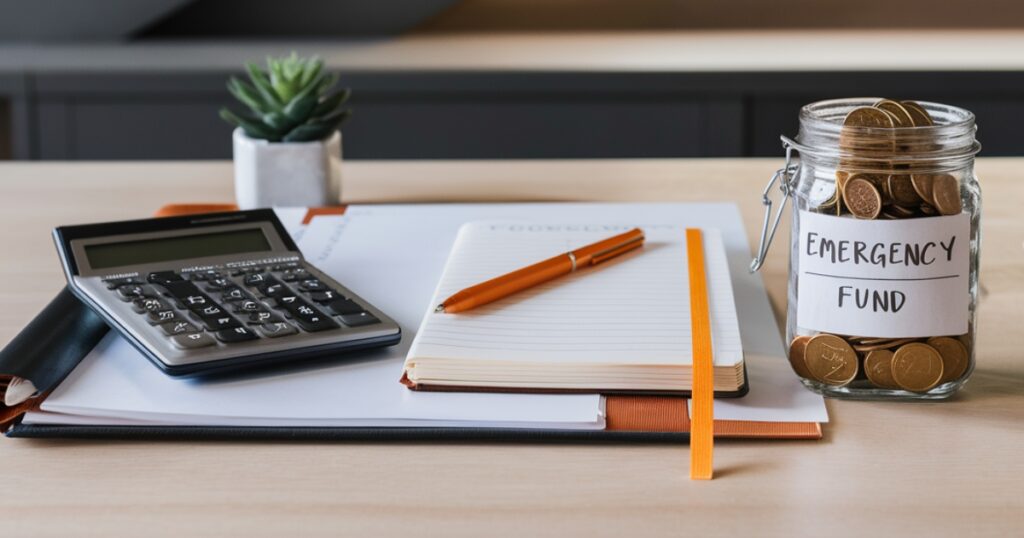
Where to Store Your Emergency Fund
Choosing the right place for your emergency fund is essential to ensure it remains secure, accessible, and reserved solely for emergencies. Here are several practical options, each suitable depending on your specific needs:

Bank or Credit Union Account
Opening a dedicated savings account at a bank or credit union is often the safest approach. These institutions are generally secure and provide easy access to your funds when needed, without the usual investment risks.
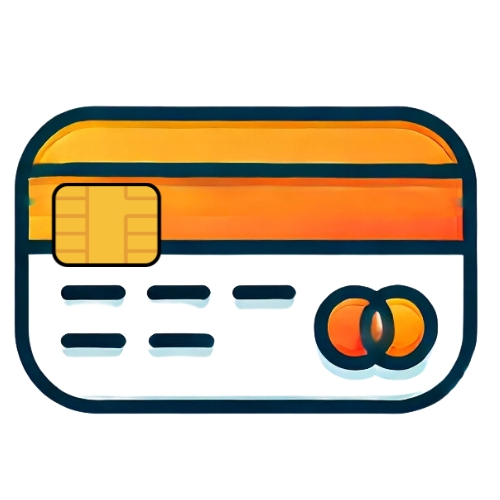
Prepaid Card
If you prefer not to link your emergency savings to a traditional bank account, a prepaid card can be a useful alternative. You can load money onto the card and use it exclusively for emergencies, reducing the risk of overspending as it does not allow you to exceed the loaded amount.
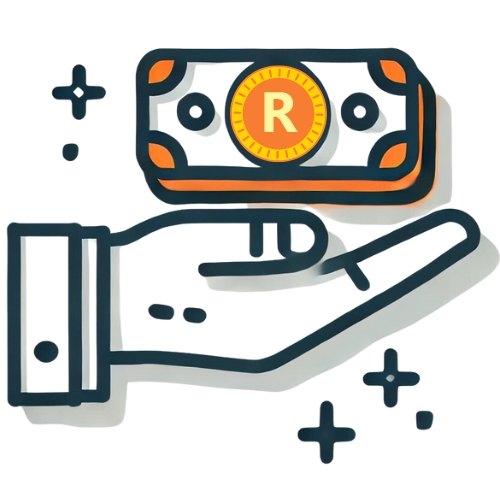
Cash Reserves
While keeping cash might seem simple, this method carries risks such as theft, loss, or damage. If you choose to keep cash, consider using a safe at home or entrusting it to a reliable family member or friend.
Selecting the best place for your emergency fund involves weighing safety, accessibility, and the discipline to use the funds only for true emergencies. Each option has its benefits and drawbacks, so consider your personal circumstances and financial habits when making your choice.
Knowing how much to save for unforeseen expenses is crucial. Our guide on How Much Savings Are You Allowed To Have? offers valuable insights into savings caps that could help you determine the right amount for your emergency fund.
Managing and Using Your Emergency Fund
When to Use Your Emergency Fund
An emergency fund is meant to cover unexpected expenses that fall outside your regular budget. This includes sudden medical bills, car repairs, job loss, or urgent home repairs. It’s important to clearly define what qualifies as an “emergency” to prevent using these funds for non-urgent needs. By setting strict criteria, you ensure the money will be available when you truly need it.
Avoiding Common Pitfalls
A common mistake with emergency funds is using them as a general savings account. To avoid this, keep your emergency fund in a separate account, preferably one that is not too easy to access, to discourage impulsive withdrawals. Also, resist the urge to use these funds for planned expenses or discretionary purchases, such as vacations or shopping sprees.
Replenishing Your Fund After Use
Once you’ve used funds from your emergency reserve, it’s important to replenish it as soon as possible. Treat this replenishment as a new financial goal. You may need to adjust your budget or temporarily cut back on non-essential expenses to put more money back into your emergency fund. Consistency is crucial, even if you can only contribute small amounts at first. The aim is to rebuild your safety net to ensure you’re prepared for any future emergencies.
Saving money consistently is easier said than done, especially in Januworry. With these Practical Money-Saving Tips to Survive Januworry, you’ll learn how to kickstart your savings journey with simple steps designed for immediate impact.

Emergency Fund vs. Other Savings
| Aspect | Emergency Fund | Other Savings |
|---|---|---|
| Purpose | To cover unexpected expenses such as medical bills, car repairs, or sudden job loss. | For specific planned expenses like vacations, education, or buying a home. |
| Liquidity | Highly liquid; funds should be easily accessible within days without penalties. | Liquidity varies; some savings like retirement accounts may have withdrawal penalties or tax implications. |
| Risk | Kept in low-risk or no-risk accounts to ensure stability. | May be invested in higher-risk accounts for potential growth, depending on goals. |
| Amount | Typically 3-6 months’ worth of living expenses. | Amount varies depending on specific goals and timelines. |
| Accessibility | Should be immediately accessible; often kept in checking or savings accounts. | May be tied up in investments, CDs, or retirement accounts. |
| Usage | Used only in cases of emergency to prevent financial instability. | Used as planned, often for large, significant expenditures or investments. |
| Replenishment | Must be replenished immediately after use to maintain financial security. | Replenishment is planned as part of ongoing contributions toward specific goals. |
Building an emergency fund is essential, but gap cover adds another layer of protection for unexpected medical expenses, ensuring your savings stay intact during critical times.
Balancing Debt and Your Emergency Fund
When managing high-interest debt from loans or credit cards, it’s essential to balance building an emergency fund with paying off debt. Each day you carry debt can be costly, as the interest charged may offset potential savings.
A practical strategy is to set a modest initial goal for your emergency fund while directing any extra funds towards reducing your debt. Once you have cleared your debt, you can increase your savings rate and aim for a higher emergency fund target. Even a small reserve is better than none, providing some level of financial security.
Given the rising concerns around South African Banks Under Parliamentary Scrutiny for Lending Practices, it’s wise to prepare for financial uncertainty. Many individuals fall into debt due to unforeseen emergencies, relying on high-interest loans from institutions now facing regulatory backlash. Building an emergency fund ensures you stay financially resilient, avoiding reliance on questionable lending practices.
Conclusion
Setting up an emergency fund is a crucial step towards achieving financial stability in South Africa. By reserving funds for unexpected expenses, individuals can avoid falling into debt and maintain stability during tough times. While starting an emergency fund might involve some initial financial adjustments, the peace of mind and financial resilience it provides make it an essential aspect of personal financial planning. As you work towards building this fund, you establish a foundation for a more secure and less stressful financial future.
Frequently Asked Questions
The amount needed in an emergency fund can vary widely in South Africa based on individual or family needs, lifestyle, and financial commitments. It is generally advised to have enough to cover 3 to 6 months’ worth of living expenses.
An emergency fund should ideally cover 3 to 6 months of expenses, including rent, food, utilities, and other essential costs. This amount can provide adequate cushioning during unexpected financial difficulties or sudden income loss.
Starting an emergency fund involves setting aside a portion of your income regularly. Begin by determining a monthly saving goal and treat this contribution as a fixed expense. As you adjust to your budget, you can gradually increase the amount you save.
A high-interest savings account is often recommended for an emergency fund due to its accessibility and liquidity. These accounts offer higher interest rates than traditional savings accounts, allowing your money to grow while remaining available for immediate withdrawal if needed.
Your emergency fund should be reserved strictly for unexpected and essential expenses, such as medical emergencies, urgent home repairs, or necessary car maintenance. It should not be used for discretionary spending, regular bills, or non-essential purchases, to ensure that the funds are available for true emergencies.
Fast, uncomplicated, and trustworthy loan comparisons
At Arcadia Finance, you can compare loan offers from multiple lenders with no obligation and free of charge. Get a clear overview of your options and choose the best deal for you.
Fill out our form today to easily compare interest rates from 19 banks and find the right loan for you.


